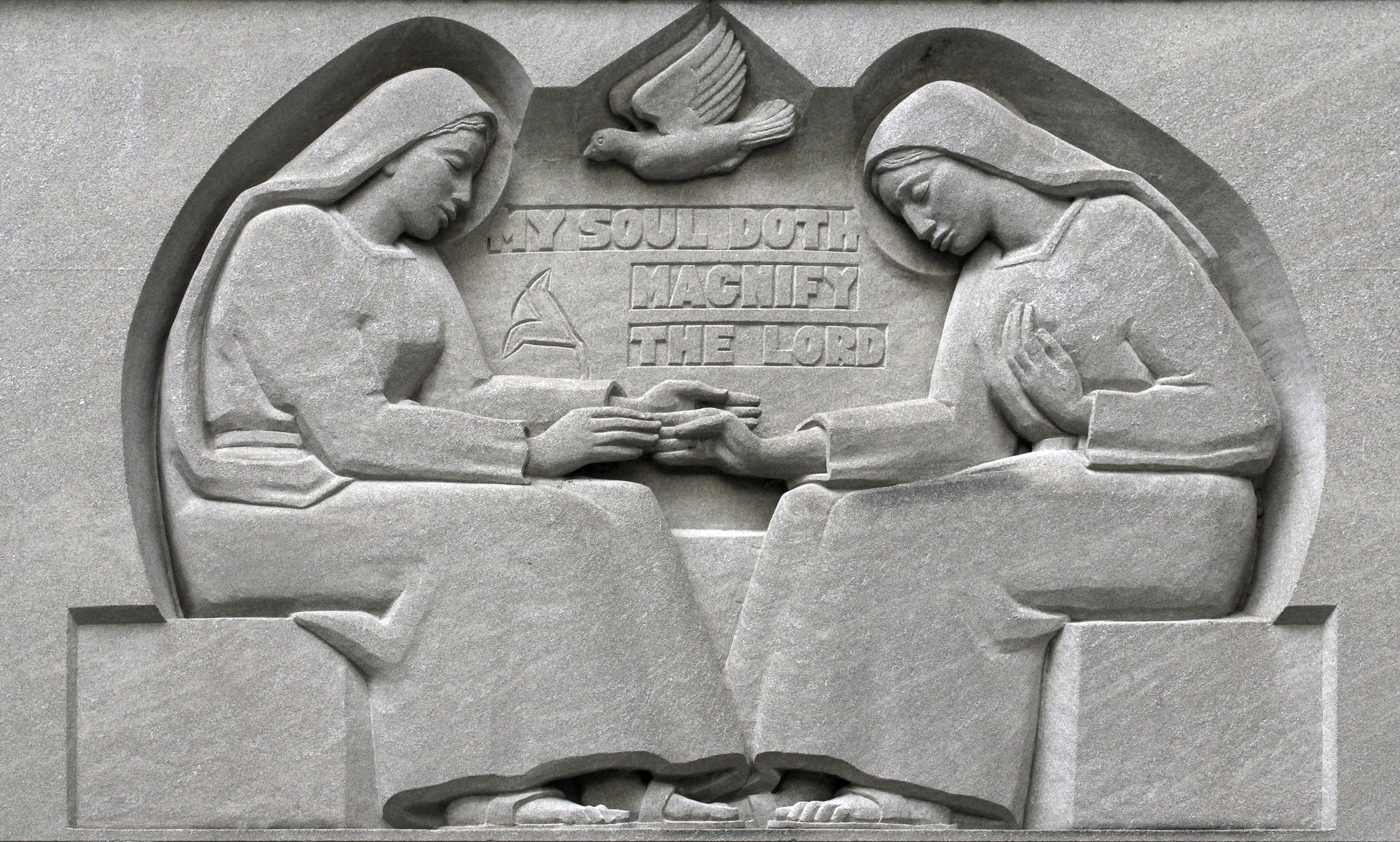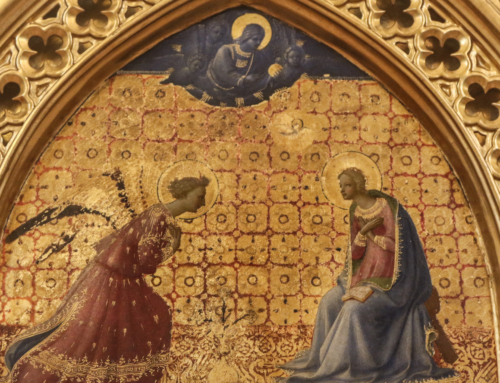Today at Mass and in the Divine Office, the Church contemplates Hannah’s Prayer of Praise in 1 Samuel and Mary’s response to Elizabeth’s greeting, the Magnificat. Mary echoed Hannah’s praise in many ways, and we in turn can make Mary’s prayer our own, for we receive the true, sacramental presence of Jesus Christ into ourselves every time we receive the Eucharist. So, we can say with her:
My soul proclaims the greatness of the Lord; my spirit rejoices in God my savior, for He has looked upon His lowly servant.
Mary’s soul continually praises God. Despite her anxieties or fears about the future, about being the mother of God, Mary rejoiced in God’s loving gaze and in His real presence within her. She knew that God always looks tenderly upon His beloved, that His saving power penetrates the most intimate places of the heart. Our souls also resound with praise as we encounter Christ’s humanity in the Eucharist. We experience the great joy of being known, and we say with Hannah and Mary, My heart exults in the LORD!
From this day all generations will call me blessed: the Almighty has done great things for me, and holy is his Name.
To Hannah, God gave a son; from barrenness, life within. This life she did not keep as a prized possession, but she returned this life to God. Through Mary, we receive Christ, and through Christ we return to the Father. Life is given to us so that we can return to God and praise the holiness of His name with greater purity. Indeed, He has done great things for us by the gift of His Son.
He has mercy on those who fear him in every generation.
Mary, the Mother of Mercy, assures us that no generation, no person, is beyond the mercy of God. When received with the fear of God, that is, with a genuine desire for spiritual change demonstrated by fervor and by freedom from mortal sin, the Eucharist is this mercy. Thus, the mercy of the sacrament of penance prepares us for the great mercy of the Eucharistic banquet in our souls.
He has shown the strength of his arm, and has scattered the proud in their conceit. He has cast down the mighty from their thrones and has lifted up the lowly.
In the “O” Antiphon preceding the Magnificat at vespers today, we beg the King of all the nations, the only joy of every human heart, to come and save us. In the Eucharist, He enters our hearts to establish the peace of His reign, to rescue us from our pride-erected illusions. He saves us from being eternally blown about like dust in the wind—the memories, dreams, sins, and fears of our lives tossed about in an incoherent narrative. Instead, He forms us in His own image, the image of a lowly servant obedient to the Father, radiant in grace, filled with the Holy Spirit.
He has filled the hungry with good things, and the rich he has sent away empty.
The baptized soul has an insatiable hunger for God. We were born into supernatural life, and like infants we need the proper nourishment for growth. We were hungry, but now we are fed with the Bread of Life. And, indeed, this satisfies our desire for a time—a glorious, grace-filled time!—but the Lord also heightens our hunger that we might be prepared for more good things, good things beyond our imagination.
He has come to the help of his servant Israel for he has remembered his promise of mercy, the promise he made to our fathers, to Abraham and his children forever.
As God’s promise lasts forever, so too must our praise be unceasing. And so it is fitting that every evening at vespers the Church prays with Mary, My soul proclaims the greatness of the Lord! The praise offered in the Divine Office is an extension and continuation of the praise offered to God through Jesus Christ in the Eucharist. Our souls are meant to be ever-full of praise, for this is our eternal destiny.
✠
Photo by Fr. Lawrence Lew, O.P. (used with permission)







